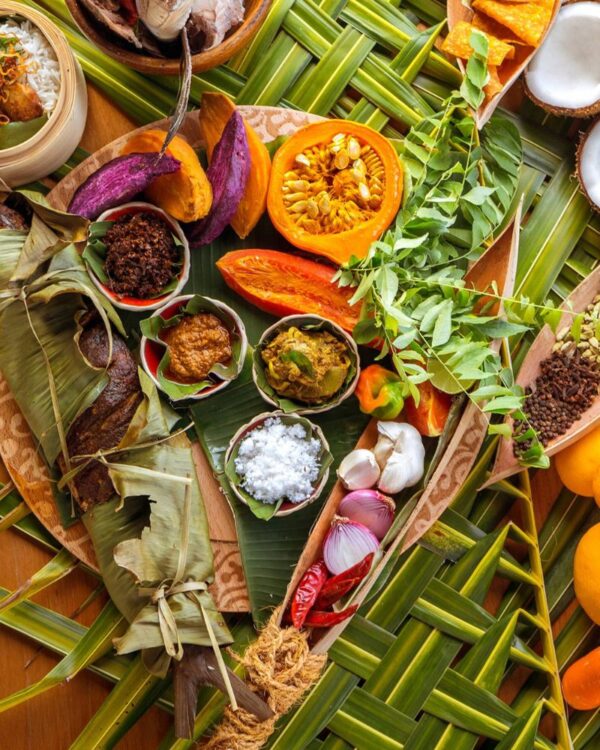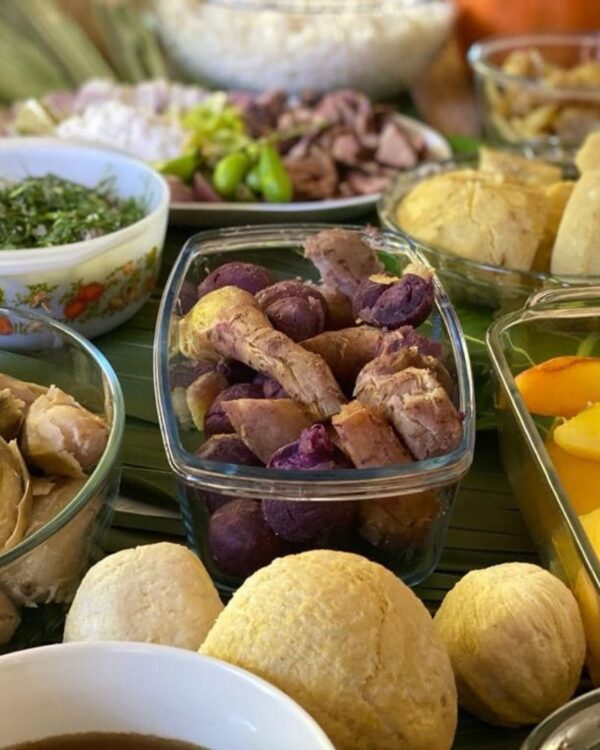Destination
Fuvahmulah, a hidden gem in the Maldives, offers pristine beaches, vibrant marine life, and rich cultural traditions, making it a perfect destination for adventure and tranquility.
The Shark Island
Fuvahmulah, the solitary atoll island, rises like a green jewel from the deep blue expanse of the Indian Ocean, just south of the equator. Known for its fierce waves and vibrant ecosystems, the island is a breathtaking blend of raw natural beauty and serene idyll. The eastern reef meets crashing midnight-blue waters that transform into tranquil turquoise shallows, while the western edge flourishes with coral-rich lagoons merging into endless white sandy beaches.
Centuries ago, seafarers braved the ocean’s might to settle on this paradise, once home to a natural harbor-like lagoon. Over time, the island evolved into a lush haven, nurturing two freshwater lakes surrounded by taro fields, mangroves, and diverse flora. This UNESCO Biosphere Reserve, declared in 2020, teems with captivating biodiversity—both terrestrial and marine—making it truly one of a kind in the Maldives. Winding forest paths and thriving ecosystems bear testament to generations of settlers who shaped Fuvahmulah’s unique identity, where nature and culture harmoniously intertwine.
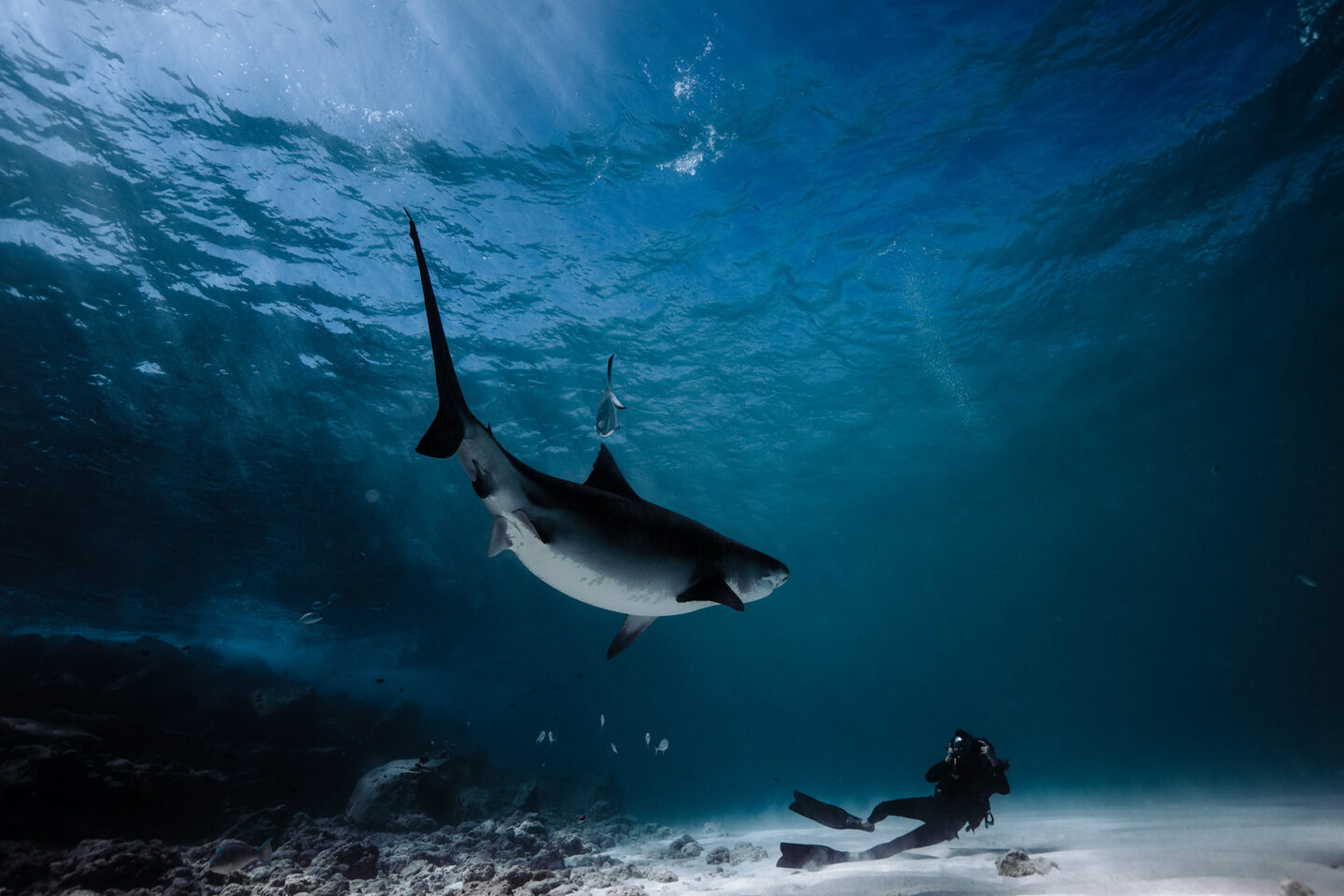
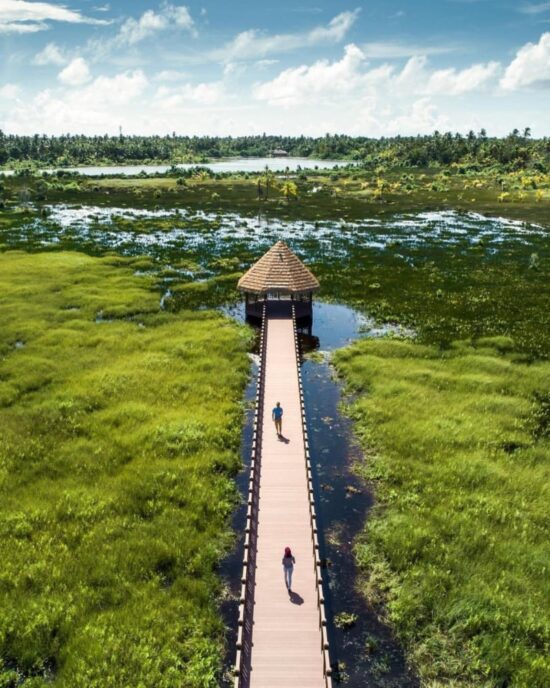
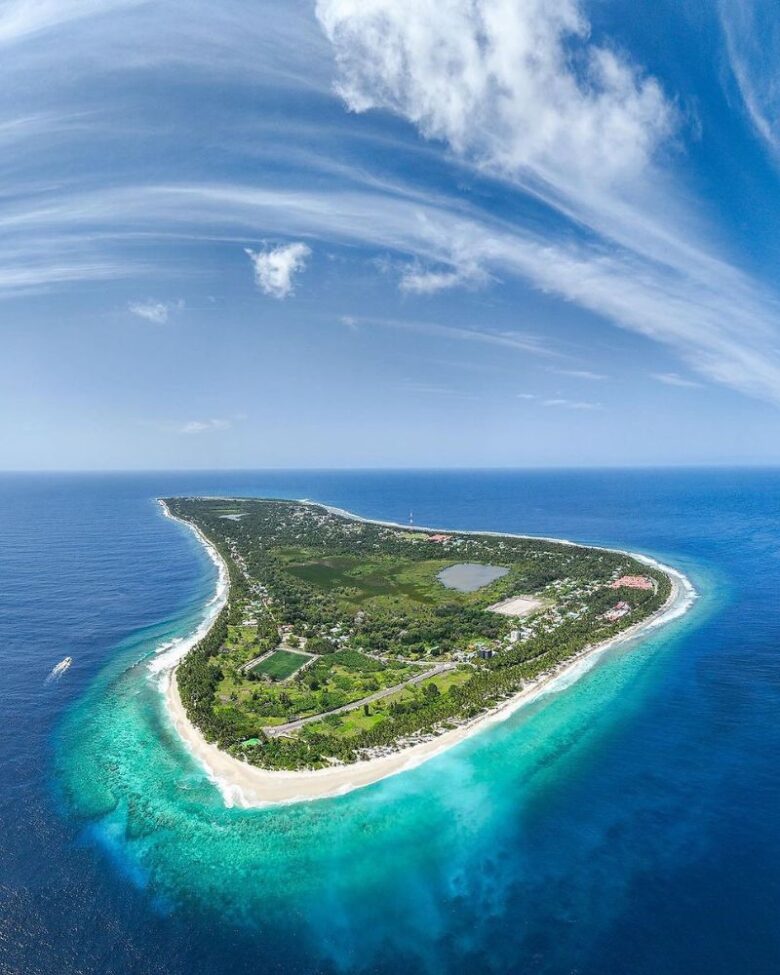
Exploring Fuvahmulah
Fuvahmulah, meaning “areca nut island” in Dhivehi, is the third-largest inhabited island in the Maldives, spanning 484 hectares and home to around 14,000 people who speak a unique dialect. Its lush natural environment and deep-rooted traditions shape daily life, with teachings on herbal medicine, navigation, astrology, and magic passed down through generations. Fishing and farming have long been central to the island’s economy, though tourism is now emerging.
Strategically located along the Indian Ocean’s equatorial seafaring route, Fuvahmulah once thrived as a trading hub with neighboring regions like Ceylon (modern-day Sri Lanka). Locally built sailboats set out with the southwest monsoon winds, carrying goods such as fish and sweets, and returned laden with treasures during the northeast monsoon, enriching the island’s vibrant culture.
Island Trails from Fuvahmulah's Rashoveshi
The “Rashoveshi,” meaning “island environment,” is a 116-verse composition by the late Ibrahim Fikri Didi (Kariyya Kalhuthuththu Didi) that captures the essence of Fuvahmulah. It offers a bird’s-eye view of the island, detailing its geography, landmarks, history, and way of life. The verses explore the windswept coastlines, seasonal changes, ancient Buddhist remnants, traditional medicine, crops, wildlife, and deep-sea legends, painting a vivid picture of the island’s rich heritage. Below is a compilation of notable features and poetic insights from the Rashoveshi and other commentaries on Fuvahmulah.
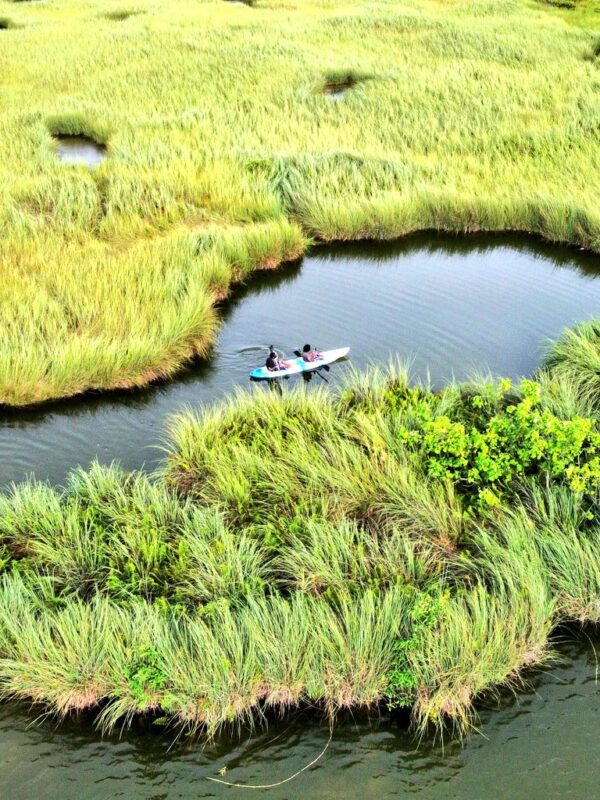
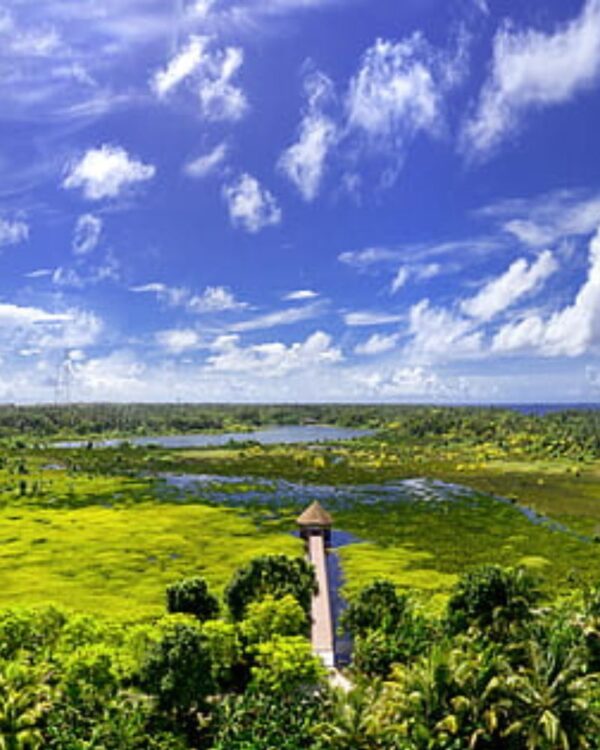
Luxurious Fuvahmulah escape, blending modern comfort with nature and culture.
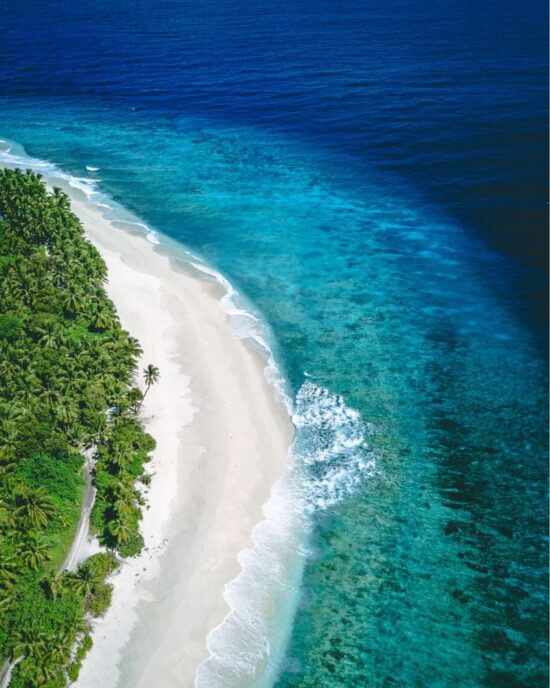
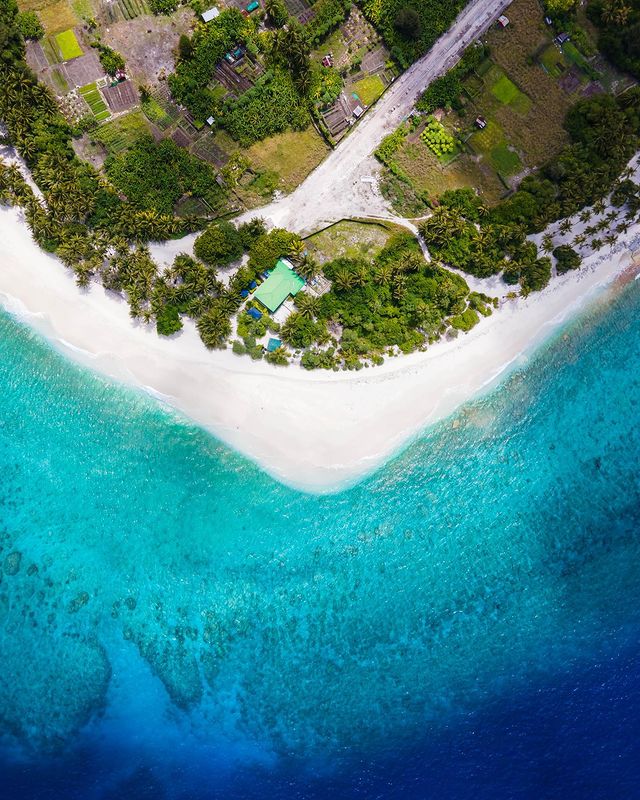
The Island Peripheries
Fuvahmulah lacks a lagoon, featuring instead a reef flat that sharply drops into the deep sea, making boat landings historically perilous. Eight man-made channels (neru or elhe’) provide access, each marked by a fanno—a communal gathering spot under coconut palms where pathways meet the ocean. These fanno, such as Rasgefanno and Bodofanno, are steeped in history, reflecting local events and community life.
Near Gen Miskiy fanno, the air fills with offerings of betel leaves, areca nuts, coconuts, and floral garlands during evening rituals as the sun sets.
An Idyllic Wetland Habitat
Fuvahmulah is a lush, self-sustaining island known for its rich ecosystems and fertile soil. It is the largest producer of Maldivian mangoes and taro, with farms and backyard marshlands yielding guavas, bananas, breadfruit, papayas, and more. Two freshwater lakes, Dhandimagi Kilhi and Bandaara Kilhi, along with swamps, taro fields, and dense groves of Alexandrian laurel trees, define its unique identity.
Activities like mud baths and freshwater swims remain popular, while meandering paths reveal tranquil habitats teeming with wildlife, such as moorhens foraging by backyard ponds. Modern homes coexist with traditions like firewood collection for cooking, and wandering narrow alleys leads to serene moments—sunlight filtering through trees or a mother singing lullabies as she rocks a swing under the afternoon sky.
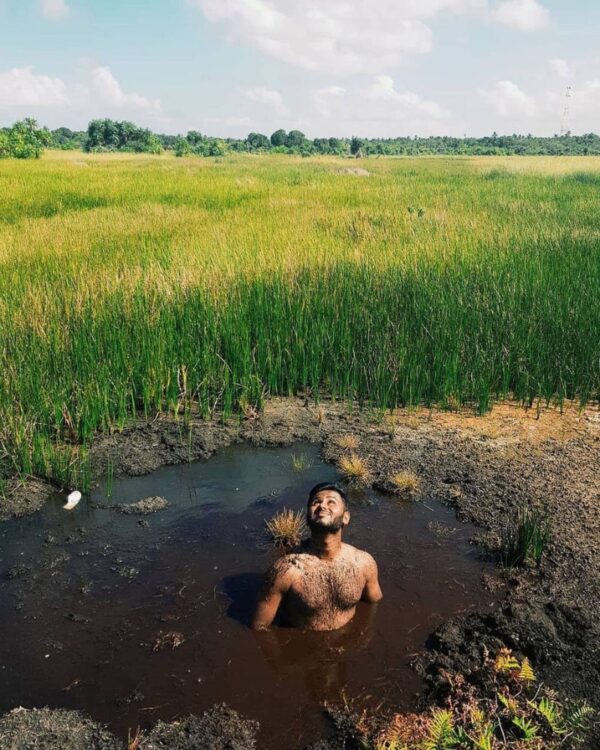
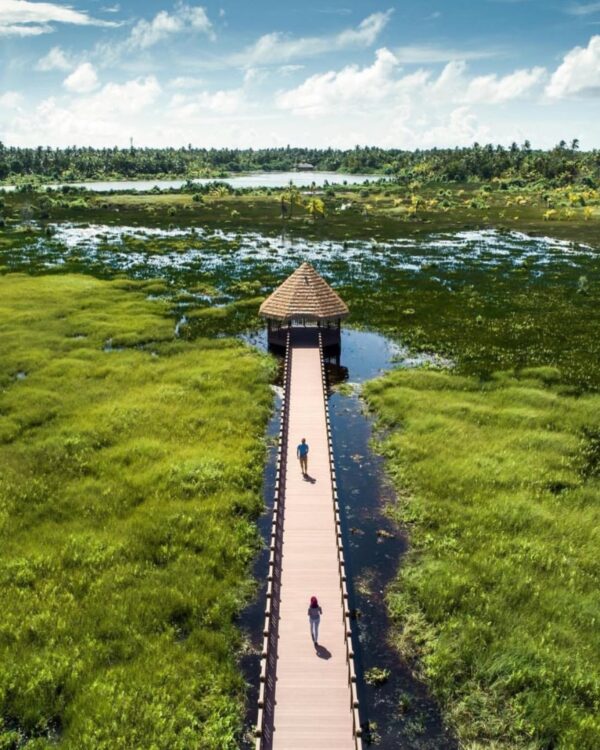
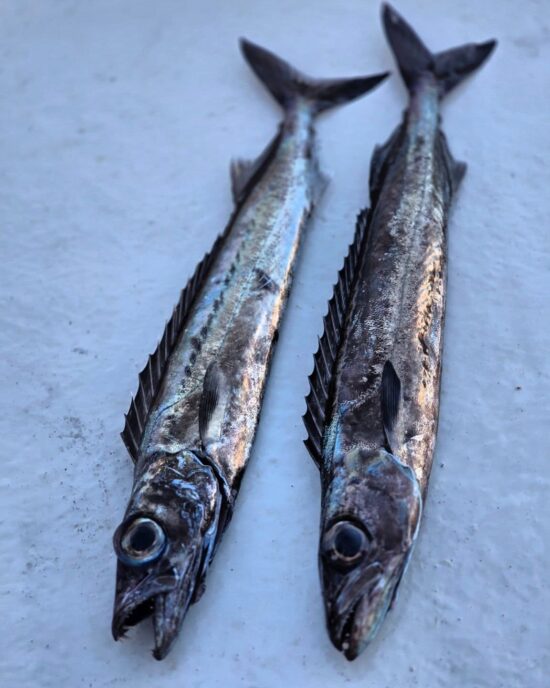
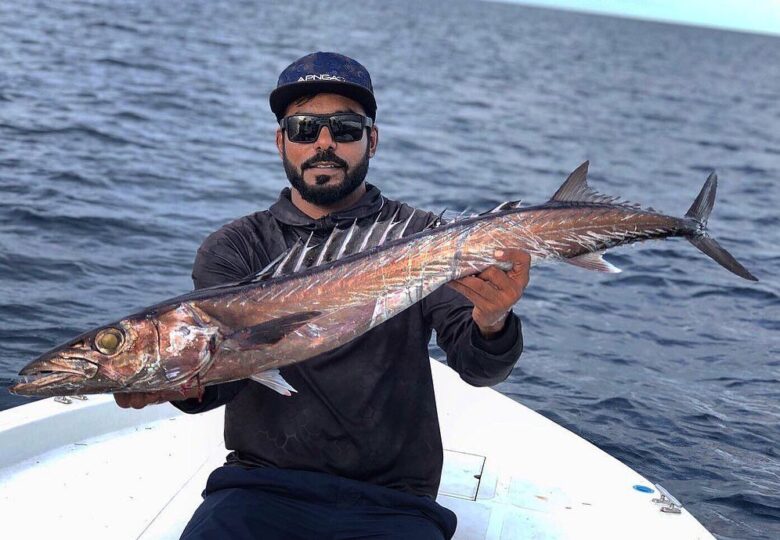
Tales of the Deep-Sea Kattelhi
Kattelhi, a deep-sea fish found along continental slopes, is a local delicacy unique to Fuvahmulah in the Maldives. Known as Promethichthys prometheus, this snake mackerel migrates to midwater at night to feed, making it a popular nighttime catch.
Enjoyed fresh in a broth with boiled taro, chili, and lime, it often features in impromptu late-night meals. Rich in folklore, the kattelhi is a cherished part of the island’s cultural identity.
The Havitta and Its Legacy of Ancient Culture
Fuvahmulah is home to remnants of an ancient Buddhist heritage, including the Fuvahmulaku Havitta, a ruined stupa located in the northeast. This dome-shaped structure, once a meditation abode, reflects the island’s pre-Islamic history. The Rashoveshi mentions relics like golden containers, lamps, and artifacts discovered within the Havitta, which were later transferred to Malé.
Nearby, the elegant coral-stone Gen Miskiy mosque stands on what was likely an ancient monastery site. After Islam’s arrival, the temple was converted into a mosque, with its yard and shores serving as holy sites for alms-giving and ancestor worship. Though traditions like incense-burning ceased in the 1980s, annual feasts by Thoondu Beach continue, preserving the islanders’ connection to their rich cultural legacy.
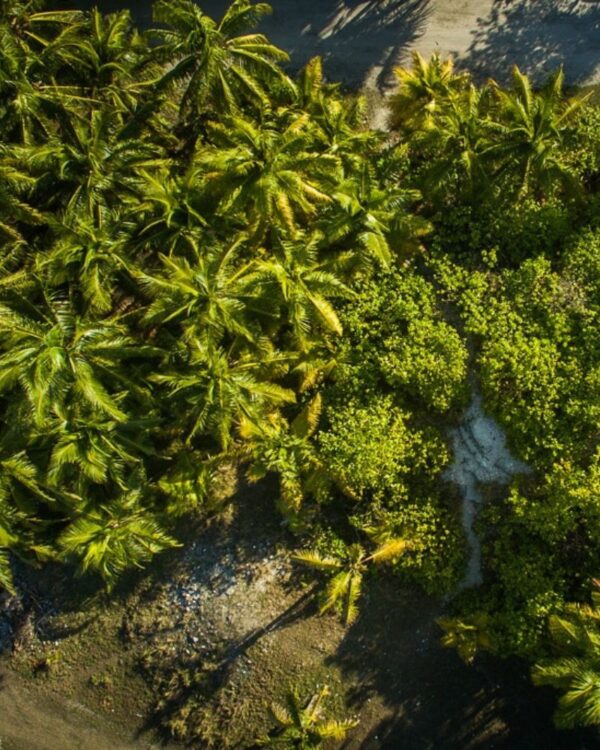
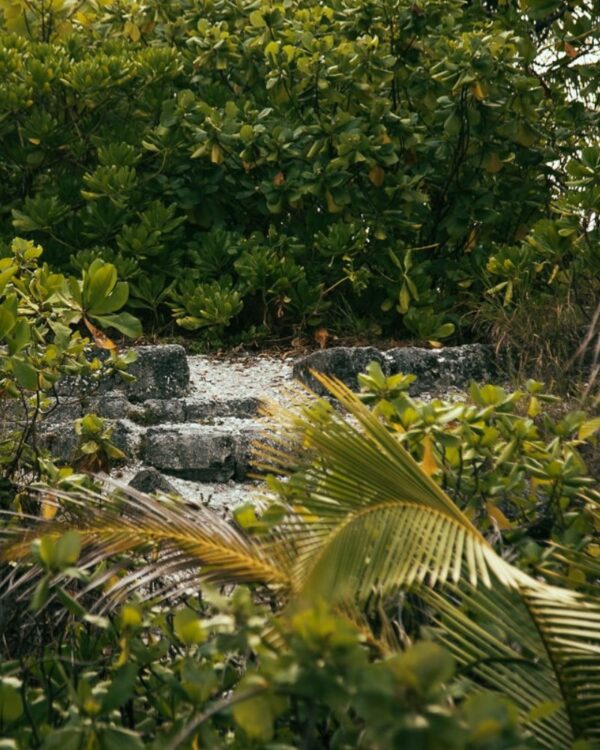
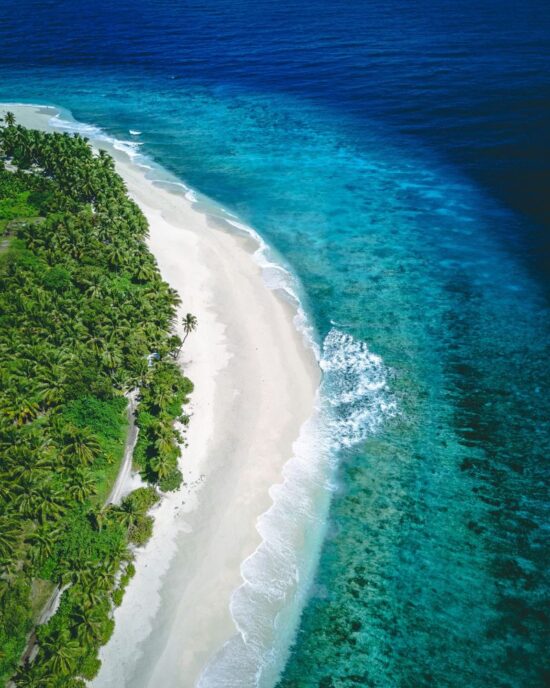
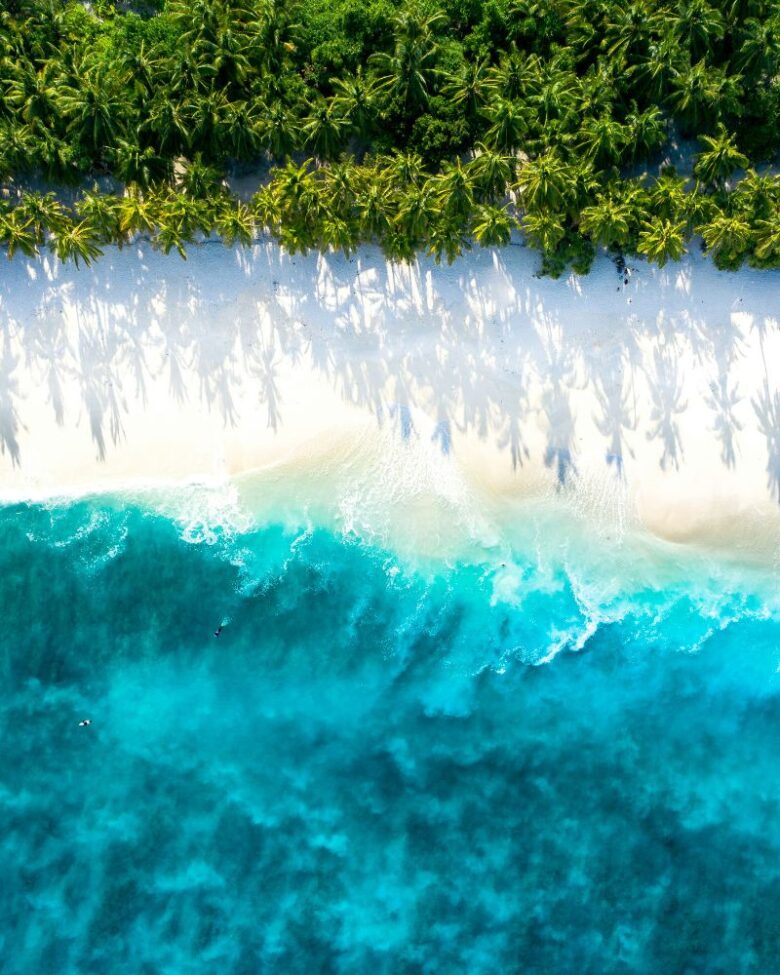
The Pebbles Beach
The Thoondu beach of Fuvahmulah is a unique gem, renowned for its smooth, luminous white coral pebbles shaped by the relentless sea. This dynamic beach reflects the island’s geomorphological identity and serves as a perpetual playground for all ages.
A natural phenomenon, the Bissaaveli, occurs when shifting sands create a temporary lagoon, drawing people for picnics and celebrations. The annual sighting of the Ramadan new moon also takes place here,uniting islanders under shoreline trees. They share traditional delicacies like smoked fish, steamed coconut patties, and pandan rice pudding, while the vast night sky witnesses this timeless harmony of nature, culture, and community.
Unique delicacies to warm your soul
Experience Fuvahmulah through its rich culinary traditions, starting with Kattelhi Garudhiya—a delicacy found only on this island. More than just a meal, it’s a journey: join locals in catching the fish, preparing it with care, and savoring the deep, soulful flavors of this beloved dish. It’s an unforgettable way to connect with the island’s heritage.
Complement your stay with a curated spread of Maldivian and Western delicacies, featuring the finest handpicked ingredients from across the globe.
Before you leave, step into a local coconut oil factory and witness the age-old craft of coconut oil production. From husk to oil, discover the essential role coconuts play in Maldivian culture, and leave with a deeper connection to the island’s way of life.
